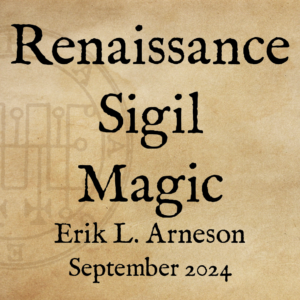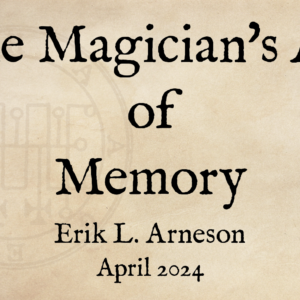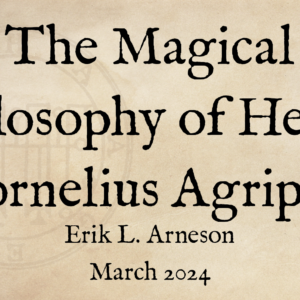A while back, I featured the Devil card as Card of the Week. In that post, I emphasized a few elements of the card’s symbolism that I find very poignant. In particular, the chains or rope binding the foreground figures is voluntary, meaning that the bonds can be thrown off. This symbolism isn’t consistent across all decks, however! Recently, Twitter user @mduduzii_98 asked me about the Devil card in the Hermetic Tarot, which made me think of how different decks present essential symbolism differently.
(more…)
[event post_id=”1267″]
In January, the Portland Scottish Rite Valley started a monthly club night. I came up with an idea for a club to study Hermetic Qabalah as it’s presented in Morals & Dogma and the Scottish Rite degrees. This has been an incredible learning experience for me.
(more…)
On Saturday, June 3rd, I gave a lecture at the Sekhet-Maat OTO Lodge titled “The Magical Memory: The Art of Memory as an Occult Practice”. Below, please find a link to the slides and a list of references used while preparing the lecture.
(more…)
I’ve been on a number of podcasts lately, so you should check these out and listen to some great conversations with a lot of really fascinating people.
- Over on My Alchemical Bromance, we recently interviewed Freemason and author Chuck Dunning. Listen to part 1 and part 2. I’ve also started a series of shorter solo episodes, which you can follow here.
- I was a guest on episode 289 of the Alexxcast! Listen to the episode here! We talk about Tarot, occultism, Freemasonry, and succubi.
I’ve been really enjoying podcasts lately, both creating them and listening to them. What’s your favorite? Please share it in the comments!
Note added on 4 June 2019: My Alchemical Bromance is now on hiatus, but I’m still podcasting right here at the Arnemancy Podcast.
There is a lot of construction going on in my neighborhood, some of it right next door. It gets loud! Since they like to start early in the morning, it can introduce a new challenge to daily meditation practice. Binaural beats and isochronic tones have helped me overcome that challenge.
(more…)
Recently, I upgraded my altar into a planetary smart altar. With a gesture, the altar lights up in colors displaying the current planetary day and hour.
(more…)
I came across this neat reading list post from Oliver Arthur Morgan and thought it would be fun to try something like that here. I talk a lot about the books I read, but it’s rare that I talk about the books that I’m going to read. Here’s a list of books I’m currently working on and books on deck.
Currently Reading

Fiction
- Dæmonomania by John Crowley
- The Chemical Wedding by Christian Rosencreutz: A Romance in Eight Days by John Crowley
- The Secret History of Twin Peaks by Mark Frost (or the guys at My Alchemical Bromance will flay me!)
Freemasonry
- Contemplative Masonry: Basic Applications of Mindfulness, Meditation, and Imagery for the Craft by C.R. Dunning, Jr. (This author will be the featured guest speaker at Esoterika Lodge № 227 for the March Quarterly!)
Hermeticism
- The Eternal Hermes: From Greek God to Alchemical Magus by Antoine Faivre and Joscelyn Godwin (I have been putting this one off for too long!)
Occult
- Mystical Qabalah by Dion Fortune (re-reading this for Qabalah Qlub — and is it just me, or does she start out kinda racist?)
On Deck
These are books that I plan to add to my rotation as slots open up. How do I read so many books at once? Well, I keep them all over the house and tend to read them depending on where I’m hanging out.
Fiction
- Endless Things: A Part of Ægypt by John Crowley (the last book of his Ægypt cycle)
Occult
- The Book of Abramelin: a New Translation by Abraham von Worms and Georg Dehn
History
Hermeticism
- The Hermetic Link: From Secret Tradition to Modern Thought by Jacob Slavenburg
These aren’t all of the books currently on my list, but they are the books that will be of the most interest to the readers of this blog. I hope you find something interesting to check out, and use it to keep learning!
Last Spring, while drinking beer with my good friend Matt, I said to him, “We should record a podcast!” At the time, I just meant that I wanted to be in an episode of his Masonic for The Laudable Pursuit. However, he thought I meant that we should start a whole new podcast. So we recruited another good friend, Joey, and got started.
(more…)
In 1908, the Yogi Publication Society published The Kybalion, a book claiming to be based on the works of Hermes Trismegistus and to contain a modern interpretation of Hermeticism. The book’s authorship is attributed to “The Three Initiates,” but their identities are not revealed. It is clear now that The Kybalion was written by the American mystic and New Thought advocate William Walker Atkinson.1 Since its publication, The Kybalion has introduced thousands of people to American mysticism and occultism. It has been a crucial cornerstone in the foundation of many modern esoteric traditions and societies. However, as we have discussed before, it does not accurately represent Hermeticism as it claims.
(more…)
Deslippe, Philip, and Three Initiates. The Kybalion: The Definitive Edition. New York: Jeremy P. Tarcher, 2011. p 2. ↩







